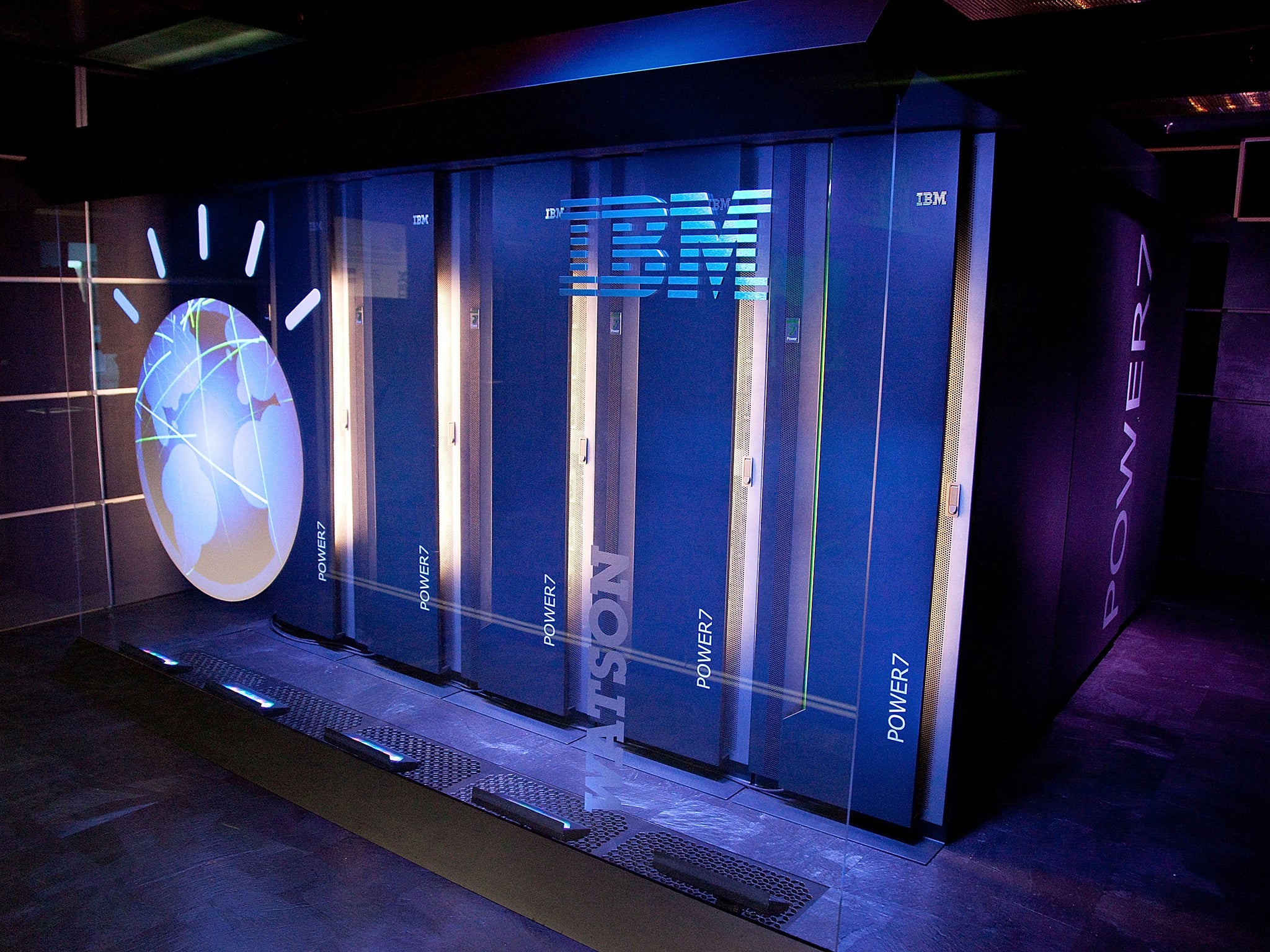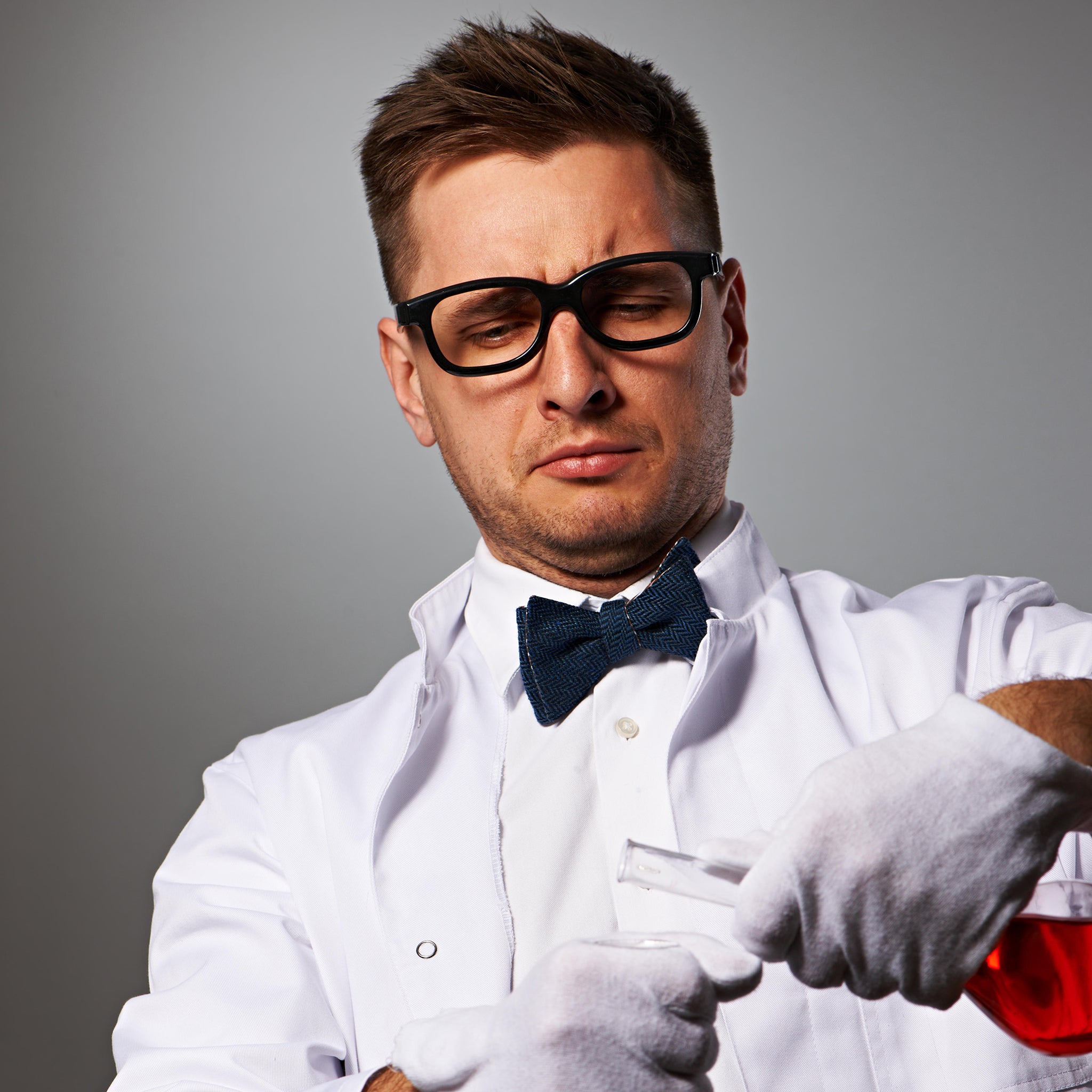IBM's new super-computer has been hailed as the future of healthcare... and it can even devise a recipe for a mean stew
Watson is an artificial-intelligence system that uses natural language processing - you can ask it a question in everyday English - and machine learning, where the computer learns without having to be programmed with new knowledge

Your support helps us to tell the story
From reproductive rights to climate change to Big Tech, The Independent is on the ground when the story is developing. Whether it's investigating the financials of Elon Musk's pro-Trump PAC or producing our latest documentary, 'The A Word', which shines a light on the American women fighting for reproductive rights, we know how important it is to parse out the facts from the messaging.
At such a critical moment in US history, we need reporters on the ground. Your donation allows us to keep sending journalists to speak to both sides of the story.
The Independent is trusted by Americans across the entire political spectrum. And unlike many other quality news outlets, we choose not to lock Americans out of our reporting and analysis with paywalls. We believe quality journalism should be available to everyone, paid for by those who can afford it.
Your support makes all the difference.IBM’s cognitive computer, Watson, has of late been helping chefs to “think outside the box” by generating recipes with surprising combinations of ingredients.
This is not the computational equivalent of choosing a bunch of ingredients at random from a hat; there is science behind the selection. Chef Watson – as this version of the system is known – has a deep knowledge of flavour pairing (flavour combinations that are known to be pleasing) and hedonic psychophysics (the psychology of what people like and don’t like).
Here are two dishes. Can you guess which one was created by Chef Watson and which one was created by a human: 1) Caramelised milk and monkfish liver and 2) Middle Eastern chickpea ragout? Drum roll. The first dish was created by humans at the Danish restaurant, Noma, and the latter is an invention of Chef Watson. I had the opportunity to try the ragout at IBM’s research laboratory in Zurich two weeks ago. It was as appetising as it was surprising. I found a very similar recipe on the Eating Well website called Middle Eastern chickpea and rice stew. The other Chef Watson dishes on offer were broccoli soup, shrimp tacos and green-tea pudding. A quick internet search confirms that there is nothing surprising about any of these recipes. They have all been done before.
What makes a dish innovative is not just unusual flavour combinations, but novel ingredients (lichen, say), novel cooking methods (sous-vide) and novel presentation (served in frozen nitrogen). But Chef Watson can’t help here. It can only suggest recipes from a list of known ingredients and known cooking methods.
But I’m being unfair. Chef Watson is meant to be a bit of fun. Steven Abrams, director of the Watson Group, speaking via telepresence at the Zurich event, said the purpose of Chef Watson is to demonstrate the power of cognitive systems in a more consumer-friendly way. “A lot of the things we talk about are rather abstract,” said Abrams. “By coming up with this application, it is easier to show the power of computational creativity.”

Now that Watson has morphed from the supercomputer that beat two Jeopardy! champions to a cloud-based service that promises to be all things to all people, the task of explaining what Watson is, or what Watson does, has become a bit more tricky.
Watson is an artificial-intelligence system that uses, among other things, natural language processing (you can ask it a question in everyday English) and machine learning (the computer learns without having to be programmed with new knowledge). Machine learning is the technology behind driverless cars, speech-recognition software, and spam filters. Natural language processing uses machine learning to get better at what it does.
In 2011, as a demonstration of how far artificial intelligence had come, Watson took part in the American game show, Jeopardy! Contestants are given general-knowledge clues in the form of answers and they must phrase their response as a question. For example, the contestant is told: Milorad Cavic almost upset this man’s perfect 2008 Olympics, losing to him by 100th of a second. For the correct answer, the contestant should reply: “Who is Michael Phelps?”
Jeopardy! clues can contain puns, slang, double-entendres and other nuances of language that conventional computers struggle to deal with. After losing to Watson, one of the contestants, Ken Jennings, wrote on his video screen: “I for one welcome our new computer overlords.”

But not everyone was as impressed as Jennings. In an interview published in Popular Mechanics, Douglas Hofstadter, a cognitive scientist and author of Gödel, Escher, Bach: An Eternal Golden Braid, described Watson as “vacuous”. “Watson is basically a text search algorithm connected to a database just like Google search,” said Hofstadter. Needless to say, Hofstadter doesn’t think that Watson possesses intelligence.
The philosopher John Searle also waded in, saying that Watson can’t think. But these sorts of philosophical arguments about whether a computer possesses intelligence or whether it can think are probably not causing IBM executives to lose much sleep. What might cause them to lose sleep is the conundrum of how you turn a very powerful, general-purpose tool into something that is commercially viable.
Although IBM has been selling Watson to healthcare organisations and financial services companies since 2012, it was only in January 2014 that IBM officially set up the Watson Group, a division whose raison d’être is to commercialise Watson. Watson Group is primarily aiming its products at the healthcare, financial services, retail and government sectors; in other words, sectors that are being crushed under the weight of big data. And with an estimated 80 per cent of data being unstructured, Watson, with its natural language prowess, is the perfect tool to ingest this data and “find hidden patterns and correlations”.
Finding hidden patterns and correlations sounds great, but it’s also a bit vague; perhaps deliberately so, because Watson is not one technology but many technologies. If you ask an IBMer what Watson is or does, you are likely to be met with hand-waving and slogans. “It’s about scaling expertise.” “It’s about turning insight into inspiration.” “It’s a natural extension of what humans do at their best.”

In the heady days after the Jeopardy! victory, healthcare seemed to be the most obvious place to employ a machine of Watson’s prodigious talents. There was talk of Watson helping oncologists choose the most effective treatment regimen for their patients. Watson could help researchers discover promising drug compounds, or new uses for existing drugs. Hell, it might even take the US Medical Licensing Exam, the professional exam that doctors need to pass before they can practice medicine, and become Watson MD.
Nowadays, the talk is more sober. Watson can help call centre workers answer customers’ questions more effectively. It can be used by businesses to answer questions such as: which company benefits do employees value the most? Or which deal is likely to close? As we’ve seen, it can suggest flavour combinations to chefs. It can also help healthcare companies match patients to clinical trials.
I’m sure that Watson will eventually deliver on its early promises, but that day is probably still a way off.
Join our commenting forum
Join thought-provoking conversations, follow other Independent readers and see their replies
Comments